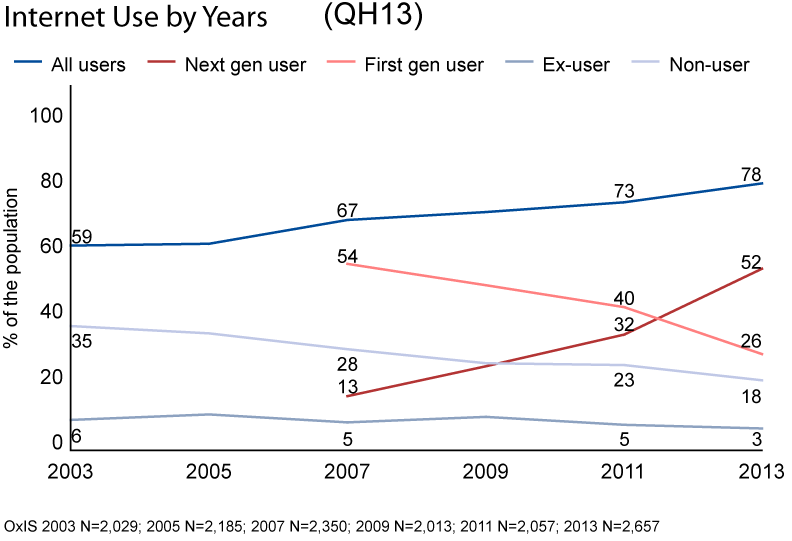In 2013, 3% of British people reported being ex-users of the Internet. This is a slight decrease 2011 when 5% of the population were ex-users of the Internet.
There is no one reason why people stop using the Internet. Perhaps most striking is the rise in the number of people who are just not interested in using the Internet, with 61% of ex-users giving this reason for their ex-Internet use (lack of interest is also the main reason cited by non-users for not being online). No longer having a computer available, and cost, remain important reasons for more than half of ex-users (57% and 52% in 2013, respectively). However, both of these reasons are less important than in 2011.
Interestingly, finding the Internet difficult to use has become a more common factor this year, possibly reflecting growing complexity of access with the rise of more devices and modes of access. Also, privacy issues (28%) and bad experiences (15%) have become more prominent among the reasons cited by ex-users. Given the small number of ex-users in our sample, it is difficult to generalise confidently about this rise in the proportion citing privacy concerns and bad experiences online, but both are plausible reasons for people moving off-line.
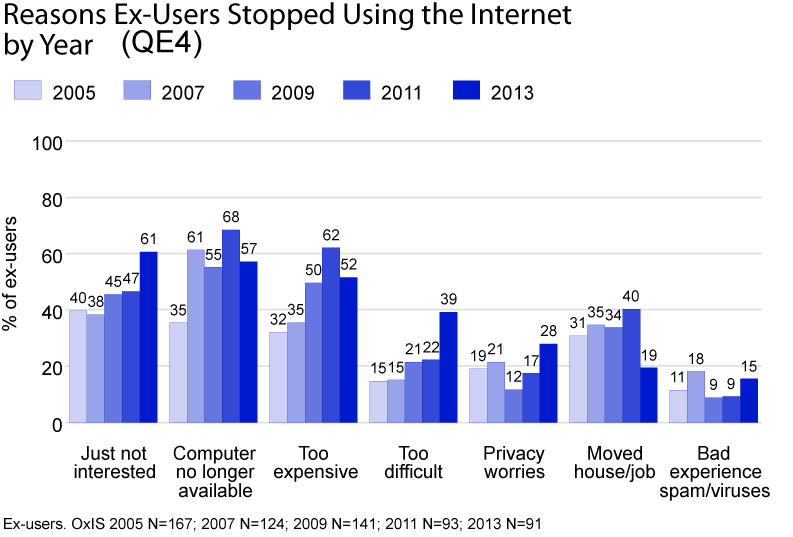
“Lack of interest” has become the most important reason why ex-users stopped using the Internet.
Looking at ‘lack of interest’
When asked for the single most important reason they stopped using the Internet, ex-users mainly indicated lack of interest (41% in 2013), followed by reasons related to lack of resources (‘too expensive’ 24%; ‘no computer available’ 10%) or skills (‘too difficult to use’ 8%).
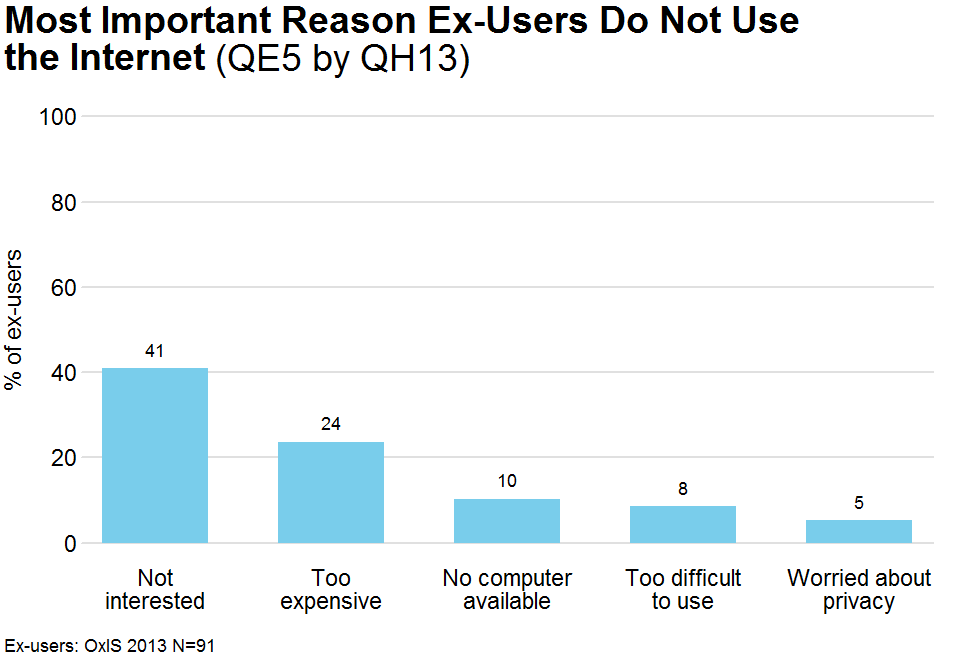
The single most important reason why ex-users do not use the Internet is that they are Not Interested.
The rising importance of lack of interest may reflect a decline in the proportion of young people who are ex-users (assuming that young people are more interested in the Internet than old people): in 2011 the age category with the most ex-users was 25–34-year-olds, in 2013 the most ex-users are in the 45–64-year-old age groups.
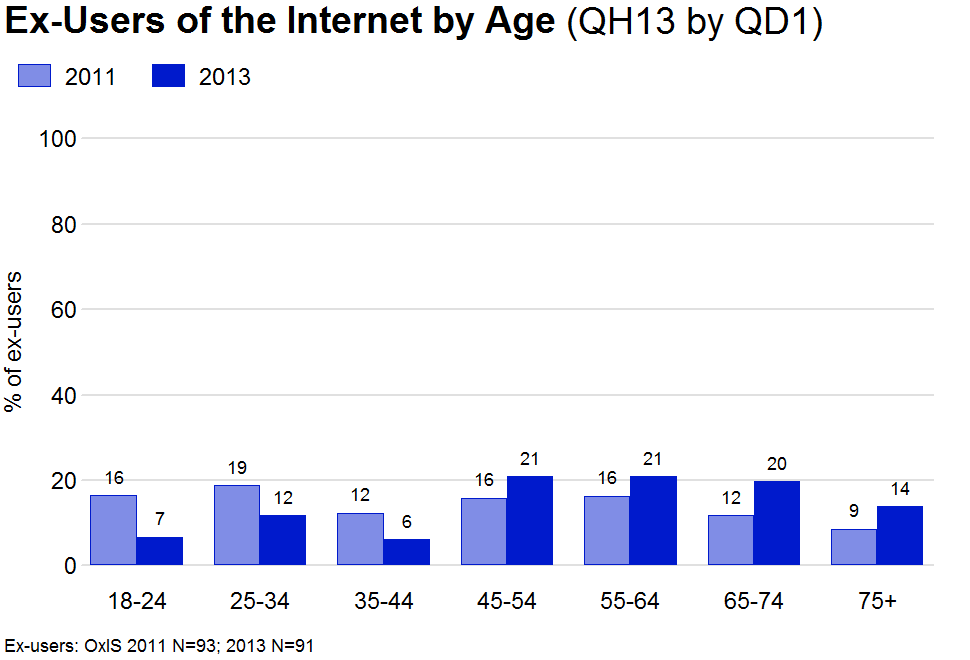
Older people are the most likely to be ex-users of the Internet.
Are ex-users happy?
What do ex-users feel about having given up on the Internet? 37% of ex-users in 2013 said they would like to use the Internet in the future, 31% said that they missed out by not using the Internet, 19% sometimes felt left out when their friends talked about the Internet, and 14% thought they could perform better in their daily tasks if they used the Internet. Compared to 2009 the most striking difference was a decline in the proportion of ex-users who would like to use the Internet in the future, from 60% in 2009 to 37% in 2013. This suggests that the population of ex-users is becoming more comfortable with not being online. They are less likely to be offline due to moving house or changing a job and more likely to have gone offline by choice. This is consistent with the earlier graphs showing lack of interest as the main reason ex-users are offline.
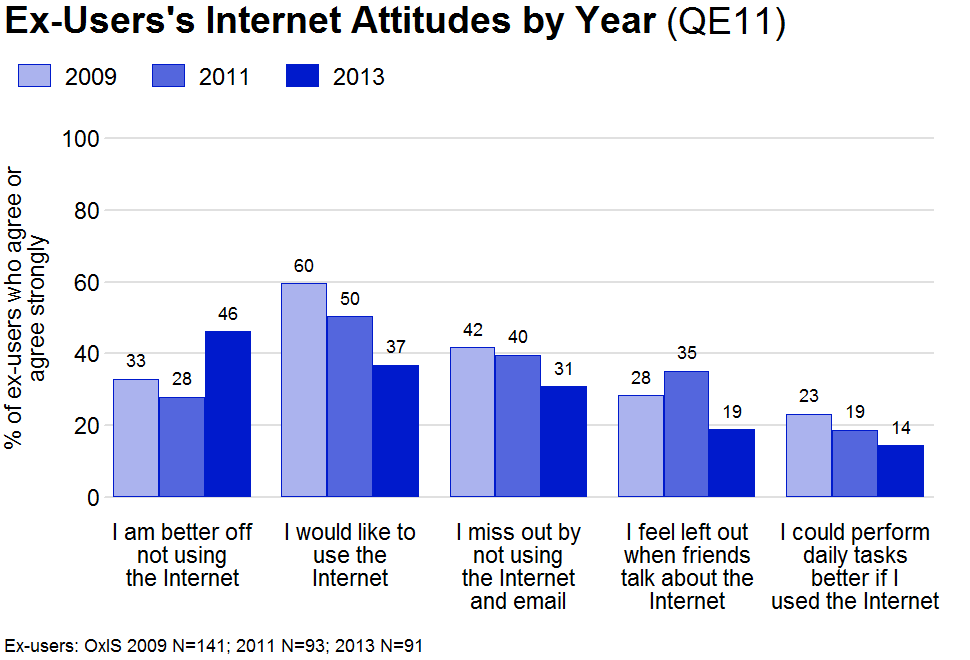
Ex-users tend to feel that they are “better off not using the Internet”.

